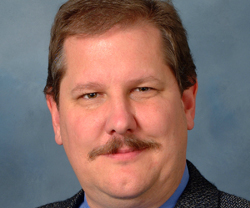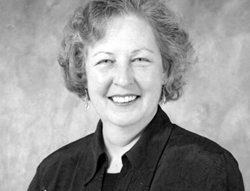 |
Steven Wengel, M.D. |
 |
Susan Boust, M.D. |
The recent passage of LB 603, which goes into effect July 1, establishes a behavioral health education center within the UNMC Department of Psychiatry.
This collaborative effort will involve other academic institutions, consumers, families, community-based agencies, law enforcement and hospitals to educate providers in current best practices in behavioral health.
“This is a huge first step to improved recruiting and retention of mental health providers of various disciplines and better access to mental health care,” said Steven Wengel, M.D., chairman of the UNMC Department of Psychiatry. “It also will improve the training of new trainees and existing providers in new methods.”
Legislative help critical to bill’s passage
Dr. Wengel praised the work of Nebraska State Sen. Tim Gay, chairman of the legislature’s health and human services committee, members of that committee and Sens. Mike Flood and Lavon Heidemann for their support of the behavioral health education center.
“These senators, as well as Gov. (Dave) Heineman, were very instrumental in gaining passage of this legislation this session,” he said.
“This is exciting and so necessary,” said UNMC psychiatry professor Susan Boust, M.D. “Providing care for people with serious illnesses requires an interdisciplinary team of people who can offer care in a different way. This center will help us learn how to do that.”
Bill creates training infrastructure
The bill creates an infrastructure for mental health trainees and mental health providers across the state. More specifically, it:
- Increases the number of residents trained in the Creighton-Nebraska Psychiatry Residency Training Program and augments their skills with rural psychiatry training, which has been limited to date.
- Develops new interdisciplinary coursework to support current providers. Training will be provided online, as well as through the state’s telehealth network. It also establishes a new certificate program for such mental health providers as physician assistants, nurse practitioners, psychologists, pharmacists, primary care physicians and social workers and offers better training in areas such as “co-occurring disorders” (combined mental health and substance abuse problems).
- Establishes new community training sites — the first of which will be at the Lasting Hope Recovery Center in Omaha. Eventually, each of the state’s six mental health regions will have an interdisciplinary training site.
|
“Thanks to Gov. Dave Heineman and my legislative colleagues, LB 603 will begin to address the difficulties faced by families within the behavioral health care system, as well those who provide such care,” said Gay, who serves as chairman of the legislature’s Health and Human Services Committee. “In these economic times, I applaud them for taking action now on a public-private partnership that builds the educational infrastructure necessary to support behavioral health providers today and in the future.”
Bill addresses shortage
The bill — companion legislation to LB 1083, which expanded community-based mental-health care in 2004 — also addresses an acute statewide shortage of behavioral health practitioners.
Nebraska is dramatically short of psychiatrists, Dr. Wengel said, who noted that 90 out of 93 counties are federally designated as a mental health shortage area. Only Douglas, Sarpy and Lancaster counties are not in the designation.
“This is a giant first step in helping alleviate this shortage,” Dr. Wengel said. He noted that health care professionals generally stay within 100 miles of where they’re trained.